- Food shortages
- Paper currency becomes worthless
- Homelessness
- Large scale migrations
- Utility interruptions
- Crime increases
- Militaristic Rule
- No or limited Fire/Police/Health services
- No more disaster relief
- A new world, recovery
1- Food shortages
 Food shortages are one of the first things to appear after a society collapses. Farms may still be producing crops at the same rate, and ranchers may be raising animals at the same production levels; however, the ability to harvest crops, process meats, manufacture foods, and transport food from farm or ranch to your store or table may fall apart at any step in the process. Whether farmers can’t find laborers to harvest crops and they rot in the fields, or ranchers can’t get their meat processed because plants are closed, just one failure in the food supply chain can have a ripple effect across industries. In this recent pandemic we have begun to see cases where meat packing plants shutdown, farmers were unable to harvest their crops, dairy farmers were forced to dump their product because distribution chains no longer allowed them the opportunity to bring their product to market. Though this initial chaos quickly passed and store shelves were restocked in short order, it should have been enough for you to realize the need to prepare for potential food shortages.
Runs on stores and empty shelves cause panic buying and hoarding which further complicates the shortages and supply chains. Hyperinflation and hyper-demand for products causes dramatic price increases, which leads to even greater panic and further compounding shortages. Having ample supply of staple products, knowing ways to cook to stretch your supplies, bartering for food, and growing your own food are all methods to insulate yourself from food shortages caused by an economic collapse.
Food shortages are one of the first things to appear after a society collapses. Farms may still be producing crops at the same rate, and ranchers may be raising animals at the same production levels; however, the ability to harvest crops, process meats, manufacture foods, and transport food from farm or ranch to your store or table may fall apart at any step in the process. Whether farmers can’t find laborers to harvest crops and they rot in the fields, or ranchers can’t get their meat processed because plants are closed, just one failure in the food supply chain can have a ripple effect across industries. In this recent pandemic we have begun to see cases where meat packing plants shutdown, farmers were unable to harvest their crops, dairy farmers were forced to dump their product because distribution chains no longer allowed them the opportunity to bring their product to market. Though this initial chaos quickly passed and store shelves were restocked in short order, it should have been enough for you to realize the need to prepare for potential food shortages.
Runs on stores and empty shelves cause panic buying and hoarding which further complicates the shortages and supply chains. Hyperinflation and hyper-demand for products causes dramatic price increases, which leads to even greater panic and further compounding shortages. Having ample supply of staple products, knowing ways to cook to stretch your supplies, bartering for food, and growing your own food are all methods to insulate yourself from food shortages caused by an economic collapse.
2- Paper currency becomes worthless
 When an economy collapses, paper currency becomes worthless. High-demand products, products in short supply, and products with supply disruptions skyrocket in price. Products become so expensive that the relative value of currency becomes much lower. It takes more and more dollars to purchase previously inexpensive products.
Precious metals, tangible goods, skills, and services become the new currency. Precious metals will retain some value amidst an economy’s collapse because they have global value and intrinsic value. People know that precious metals, like minted coins, hold value, so they will be more willing to barter for precious metals over paper currency. Precious metals will also retain value in economy’s of neighboring countries that are not experiencing a collapse. Perhaps more invaluable than even gold, however, is the value that you can bring to bear based upon your skills and talents.
Skills are your number one commodity and are of greatest value. Possessing needed skills like carpentry, sewing, medicine, homebrewing, fishing, hunting, welding, and the like will allow you to trade these services for food and other services you will need to survive. When paper currency is, literally, not worth the paper it is printed on, what you can do will determine what you can obtain in goods and services.
When an economy collapses, paper currency becomes worthless. High-demand products, products in short supply, and products with supply disruptions skyrocket in price. Products become so expensive that the relative value of currency becomes much lower. It takes more and more dollars to purchase previously inexpensive products.
Precious metals, tangible goods, skills, and services become the new currency. Precious metals will retain some value amidst an economy’s collapse because they have global value and intrinsic value. People know that precious metals, like minted coins, hold value, so they will be more willing to barter for precious metals over paper currency. Precious metals will also retain value in economy’s of neighboring countries that are not experiencing a collapse. Perhaps more invaluable than even gold, however, is the value that you can bring to bear based upon your skills and talents.
Skills are your number one commodity and are of greatest value. Possessing needed skills like carpentry, sewing, medicine, homebrewing, fishing, hunting, welding, and the like will allow you to trade these services for food and other services you will need to survive. When paper currency is, literally, not worth the paper it is printed on, what you can do will determine what you can obtain in goods and services.
3- Homelessness
 With the 2020 CARES Act set to soon expire in the United States, the nation may be facing a homelessness crisis even before the year is out. Already, politicians and economists are warning that the added income on top of unemployment benefits may be the only thing keeping people in their homes and apartments. Pro-opening and pro-quarantine factions continue to debate the merits of their causes, but with unemployment at historic highs and consumer spending dramatically slowed, the economy is not likely to add the millions of jobs it has lost. When the benefit packages, retirement savings, vacation hours, and personal savings run out and congress argues and debates over what, if anything, should come next, it’s not unlikely that the evictions and foreclosures will follow.
As tenants cannot pay, landlords will evict by law or by force. Government mortgage and rent relief programs can only last so long. When these supplemental resources and personal reserves run out and people join the ranks of the truly unemployed and are unable to pay their rent or mortgage, evictions will be looming. Some people will be able to gather family members under the same roof. Other, less fortunate people, will find themselves searching for shelter. Owning land is the best insulation from homelessness, but not everyone is in a position to do that. This leads to the 4th thing that occurs when a country’s economy collapses.
With the 2020 CARES Act set to soon expire in the United States, the nation may be facing a homelessness crisis even before the year is out. Already, politicians and economists are warning that the added income on top of unemployment benefits may be the only thing keeping people in their homes and apartments. Pro-opening and pro-quarantine factions continue to debate the merits of their causes, but with unemployment at historic highs and consumer spending dramatically slowed, the economy is not likely to add the millions of jobs it has lost. When the benefit packages, retirement savings, vacation hours, and personal savings run out and congress argues and debates over what, if anything, should come next, it’s not unlikely that the evictions and foreclosures will follow.
As tenants cannot pay, landlords will evict by law or by force. Government mortgage and rent relief programs can only last so long. When these supplemental resources and personal reserves run out and people join the ranks of the truly unemployed and are unable to pay their rent or mortgage, evictions will be looming. Some people will be able to gather family members under the same roof. Other, less fortunate people, will find themselves searching for shelter. Owning land is the best insulation from homelessness, but not everyone is in a position to do that. This leads to the 4th thing that occurs when a country’s economy collapses.
4- Large scale migrations
 Large scale migrations are inevitable as people seek out places rumored to have jobs or food. Just like during the Great Depression and the dust bowl, people finding themselves homeless will seek locations where they can work, eat, or find stable shelter. As people search for jobs and resources they move across the land and through your community. They may move across or through your area, which can cause safety issues for you and the security of your resources. They may try to homestead near you and forage from the same areas thereby reducing your available resources.
After every armed conflict you see whole caravans of migrants fleeing their once stable homes in search of a better life. Most are not received well by people on the land they are trying to cross or settle. Large scale migrations are inevitable in any nation’s economic collapse, and these large-scale migrations can put your safety in jeopardy if you’re trying to stay put or travel, yourself, to a safer location.
Large scale migrations are inevitable as people seek out places rumored to have jobs or food. Just like during the Great Depression and the dust bowl, people finding themselves homeless will seek locations where they can work, eat, or find stable shelter. As people search for jobs and resources they move across the land and through your community. They may move across or through your area, which can cause safety issues for you and the security of your resources. They may try to homestead near you and forage from the same areas thereby reducing your available resources.
After every armed conflict you see whole caravans of migrants fleeing their once stable homes in search of a better life. Most are not received well by people on the land they are trying to cross or settle. Large scale migrations are inevitable in any nation’s economic collapse, and these large-scale migrations can put your safety in jeopardy if you’re trying to stay put or travel, yourself, to a safer location.
5- Utility interruptions
 The fifth inevitable occurrence when a nation’s economy collapses is the interruption of utilities. As utility services are cut off for non-payment, pirating of utilities becomes more commonplace. This can divert power from your location or cause large-scale, regional outages. As prices rise or money becomes worthless, utilities will never be a free service, so they’re just shut down. The United States power grid is very old and in constant need of maintenance and repair. As utility companies are unable to meet maintenance schedules or are forced to cutback on their labor force, extended periods of utility interruptions are inevitable.
Water, power, even garbage services can all be temporarily halted or interrupted. Compound these economic interruptions with any other natural disaster: flood, tornado, earthquake, and the like, and you could see a service interruption which could last for weeks or months. Poor maintenance and flooding can easily lead to the poisoning of municipal water sources. Having a home storage, barrel system, or natural water source will be critical to your survival. Alternative power methods and water reserves provide some insulation from the harmful consequences of an economic collapse. Having access to natural flows or collection points of water can sustain you through disruptions, and having at least some form of alternate power generation like solar or wind energy will allow you to, at the very least, sustain yourself.
The fifth inevitable occurrence when a nation’s economy collapses is the interruption of utilities. As utility services are cut off for non-payment, pirating of utilities becomes more commonplace. This can divert power from your location or cause large-scale, regional outages. As prices rise or money becomes worthless, utilities will never be a free service, so they’re just shut down. The United States power grid is very old and in constant need of maintenance and repair. As utility companies are unable to meet maintenance schedules or are forced to cutback on their labor force, extended periods of utility interruptions are inevitable.
Water, power, even garbage services can all be temporarily halted or interrupted. Compound these economic interruptions with any other natural disaster: flood, tornado, earthquake, and the like, and you could see a service interruption which could last for weeks or months. Poor maintenance and flooding can easily lead to the poisoning of municipal water sources. Having a home storage, barrel system, or natural water source will be critical to your survival. Alternative power methods and water reserves provide some insulation from the harmful consequences of an economic collapse. Having access to natural flows or collection points of water can sustain you through disruptions, and having at least some form of alternate power generation like solar or wind energy will allow you to, at the very least, sustain yourself.
6- Crime increases
 Crime and lawlessness increase tremendously after any nation’s economy fails. Kidnappings, muggings, robberies, and looting all become commonplace. If local law enforcement is unable to keep pace or keep a police force in the field, criminals and desperate people will prey upon the weak and seize by force whatever they feel they can safely get away with. In some cases these crimes will be individuals taking advantage of the circumstances, but as the nation continues to decline, roving gangs and armed groups can become more commonplace. As others see the normal societal rules and laws only applying to some and in some areas, a growing desperation emerges. People begin to ignore laws to make sure they have the resources they need to survive.
Keeping your resources and prepared supplies concealed and secret are essential to your ongoing security. Having some forms of personal protection and security become essential. Even the perception of strength can work to your advantage. If your shades are drawn, criminals don’t know what they will encounter. If your resources are hidden, opportunistic people will pass over your location for a softer and visibly richer target. Remember, those looking to take advantage of the situation will often look for easy targets.
This leads to the 7nth thing that occurs when an economy collapses – militaristic rule.
Crime and lawlessness increase tremendously after any nation’s economy fails. Kidnappings, muggings, robberies, and looting all become commonplace. If local law enforcement is unable to keep pace or keep a police force in the field, criminals and desperate people will prey upon the weak and seize by force whatever they feel they can safely get away with. In some cases these crimes will be individuals taking advantage of the circumstances, but as the nation continues to decline, roving gangs and armed groups can become more commonplace. As others see the normal societal rules and laws only applying to some and in some areas, a growing desperation emerges. People begin to ignore laws to make sure they have the resources they need to survive.
Keeping your resources and prepared supplies concealed and secret are essential to your ongoing security. Having some forms of personal protection and security become essential. Even the perception of strength can work to your advantage. If your shades are drawn, criminals don’t know what they will encounter. If your resources are hidden, opportunistic people will pass over your location for a softer and visibly richer target. Remember, those looking to take advantage of the situation will often look for easy targets.
This leads to the 7nth thing that occurs when an economy collapses – militaristic rule.
7- Militaristic Rule
 When an economy collapses, the threat of militaristic rule rises from potential to probable. When police are unable to control the lawlessness, local, state, and federal governments will do whatever they can to restore peace, maintain some semblance of stability, and retain power. This can lead to greater armed confrontations, which can then cause an even greater military presence.
In some areas, martial law or something that looks like martial law will be put in place. Militias, local police forces, state National Guard units, military – each may control pockets of population and may end up fighting each other for that control. You should be prepared to lay low or to bug out of your location if possible. Having prepper stores off-site, secured, or even buried will allow you to get to a safer location and survive once there. This isn’t always a possibility, for many city preppers. If you have to bug-out, be prepared for the self-proclaimed authority forces you may encounter, as well as potential marauding bands. Keep some of your supplies hidden but more visible than your main supplies. If you have a 5 pound bag of flour hidden slightly in your bug out vehicle but another 25 pounds hidden more deeply, you are likely only going to be out the 5 pounds should you get stopped and shaken down.
Even in an economic collapse, not everyone is going to want to kill you if they can take what you have at gunpoint. If you are bugging-in, be prepared for self-proclaimed authorities to seize your supplies in the name of their cause. The same practices apply. Have a deeper and more hidden supply to make it appear as though the slightly hidden supplies are all you have. During the American Revolution, it was not uncommon for patriot forces to seize people’s food and cattle in the name of the rebellion. Colonialists were sometimes paid in mostly worthless IOUs. A starving military under sporadic and unclear leadership could seize your visible supplies partially or wholly.
When an economy collapses, the threat of militaristic rule rises from potential to probable. When police are unable to control the lawlessness, local, state, and federal governments will do whatever they can to restore peace, maintain some semblance of stability, and retain power. This can lead to greater armed confrontations, which can then cause an even greater military presence.
In some areas, martial law or something that looks like martial law will be put in place. Militias, local police forces, state National Guard units, military – each may control pockets of population and may end up fighting each other for that control. You should be prepared to lay low or to bug out of your location if possible. Having prepper stores off-site, secured, or even buried will allow you to get to a safer location and survive once there. This isn’t always a possibility, for many city preppers. If you have to bug-out, be prepared for the self-proclaimed authority forces you may encounter, as well as potential marauding bands. Keep some of your supplies hidden but more visible than your main supplies. If you have a 5 pound bag of flour hidden slightly in your bug out vehicle but another 25 pounds hidden more deeply, you are likely only going to be out the 5 pounds should you get stopped and shaken down.
Even in an economic collapse, not everyone is going to want to kill you if they can take what you have at gunpoint. If you are bugging-in, be prepared for self-proclaimed authorities to seize your supplies in the name of their cause. The same practices apply. Have a deeper and more hidden supply to make it appear as though the slightly hidden supplies are all you have. During the American Revolution, it was not uncommon for patriot forces to seize people’s food and cattle in the name of the rebellion. Colonialists were sometimes paid in mostly worthless IOUs. A starving military under sporadic and unclear leadership could seize your visible supplies partially or wholly.
8- No or limited Fire/Police/Health services
 The 8th thing that occurs during any nation’s economic collapse is the limiting or complete failure of fire, police, and health services. If there’s a building fire but the streets are blocked, no fire engines will be coming to put out the fire. If police are trying to quell a riot, none will be available to stop the robber at your back door. If hospitals are inundated with wounded, sick, or short staffed, will anyone come for you if you accidentally cut yourself or suffer a medical emergency? When local economies fail, these workers may be laid off or let go. They won’t work forever for free.
In the days after hurricane Katrina, police officers were not reporting to duty in full numbers as they cared for and protected their own families. As hospitals prepared for a wave of COVID-19 patients in need of critical care, other medical procedures were delayed or cancelled. During any economic collapse, these services of fire, police, and health will be, at best, sporadic. In some cases, they may not exist all together. Review your preparations in case of a fire. Can you contain a small fire? Can you evacuate safely if you must? Review your personal security preparations. Is your bug-in location safe when locked down? Can you protect yourself if you need to bug-out? Review your medical needs. We have several blogs on all of these subjects on my channel if you want to take a deeper look at any of them, but do realize that these critical health and safety resources are also some of the first things to go as a nation’s infrastructure collapses.
The 8th thing that occurs during any nation’s economic collapse is the limiting or complete failure of fire, police, and health services. If there’s a building fire but the streets are blocked, no fire engines will be coming to put out the fire. If police are trying to quell a riot, none will be available to stop the robber at your back door. If hospitals are inundated with wounded, sick, or short staffed, will anyone come for you if you accidentally cut yourself or suffer a medical emergency? When local economies fail, these workers may be laid off or let go. They won’t work forever for free.
In the days after hurricane Katrina, police officers were not reporting to duty in full numbers as they cared for and protected their own families. As hospitals prepared for a wave of COVID-19 patients in need of critical care, other medical procedures were delayed or cancelled. During any economic collapse, these services of fire, police, and health will be, at best, sporadic. In some cases, they may not exist all together. Review your preparations in case of a fire. Can you contain a small fire? Can you evacuate safely if you must? Review your personal security preparations. Is your bug-in location safe when locked down? Can you protect yourself if you need to bug-out? Review your medical needs. We have several blogs on all of these subjects on my channel if you want to take a deeper look at any of them, but do realize that these critical health and safety resources are also some of the first things to go as a nation’s infrastructure collapses.
9- No more disaster relief
 In addition to the failure of local fire, police, and health services, realize that our 9th thing to go is disaster relief. An economic downturn or depression can turn deadly after any natural disaster. Federal relief and rescue sources may not be available at all or may not be able to get to you. Any natural disaster would result in a greater death toll and would intensify the economic collapse.
A hurricane hitting the East coast, for example, in the absence of a federal relief effort and with the absence of local fire, medical, and police services could result in famine, disease, looting, and a mass migration of fleeing people. An earthquake could turn a population desperate to survive. Death tolls can skyrocket and your personal security may be left solely up to you.
When prepping, prepare for the obvious, probable disasters that occur in your area normally, but also prepare for the possible disasters which could result from a compounding of disasters. During an economic depression, emergency relief may not come, so make sure your supplies can sustain you for as many weeks as possible.
In addition to the failure of local fire, police, and health services, realize that our 9th thing to go is disaster relief. An economic downturn or depression can turn deadly after any natural disaster. Federal relief and rescue sources may not be available at all or may not be able to get to you. Any natural disaster would result in a greater death toll and would intensify the economic collapse.
A hurricane hitting the East coast, for example, in the absence of a federal relief effort and with the absence of local fire, medical, and police services could result in famine, disease, looting, and a mass migration of fleeing people. An earthquake could turn a population desperate to survive. Death tolls can skyrocket and your personal security may be left solely up to you.
When prepping, prepare for the obvious, probable disasters that occur in your area normally, but also prepare for the possible disasters which could result from a compounding of disasters. During an economic depression, emergency relief may not come, so make sure your supplies can sustain you for as many weeks as possible.
10- A new world, recovery
 The final thing that occurs after any nation’s economy collapses is an eventual recovery. All economies are cyclical. What holds and retains value may change as the circumstances change, but a new world does emerge. While governments may change, economies continue in one way or another. Power may change hands at the highest levels. Whole systems of democracy can swiftly become feudalistic societies or authoritarian reigns. Eventually, some stability returns to a region. What that looks like is impossible to know, but if you prepare for the immediate things which occur when an economy collapses, your chances of riding out the storm and surviving to a time of recovery increase.
Likewise, your value to the new society increases according to what you are able to produce or maintain. If you are able to grow food, people will always need to eat. If you know how to hunt or forage, people will always need to eat to survive.
Even in the darkest days of a nation’s collapse, some form of recovery is in the future. What that recovery looks like is out of your control, but making it to that recovery is the essence of proper prepping. After every economic collapse, a recovery occurs. Stability does eventually return to a region. What that new economy and world looks like is impossible to know, but if you prepare for the immediate things which occur when an economy collapses, your chances of riding out the storm and surviving to a time of recovery increase.
The final thing that occurs after any nation’s economy collapses is an eventual recovery. All economies are cyclical. What holds and retains value may change as the circumstances change, but a new world does emerge. While governments may change, economies continue in one way or another. Power may change hands at the highest levels. Whole systems of democracy can swiftly become feudalistic societies or authoritarian reigns. Eventually, some stability returns to a region. What that looks like is impossible to know, but if you prepare for the immediate things which occur when an economy collapses, your chances of riding out the storm and surviving to a time of recovery increase.
Likewise, your value to the new society increases according to what you are able to produce or maintain. If you are able to grow food, people will always need to eat. If you know how to hunt or forage, people will always need to eat to survive.
Even in the darkest days of a nation’s collapse, some form of recovery is in the future. What that recovery looks like is out of your control, but making it to that recovery is the essence of proper prepping. After every economic collapse, a recovery occurs. Stability does eventually return to a region. What that new economy and world looks like is impossible to know, but if you prepare for the immediate things which occur when an economy collapses, your chances of riding out the storm and surviving to a time of recovery increase.
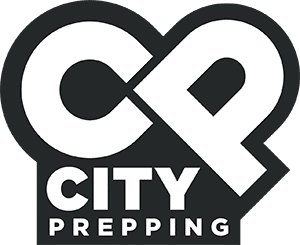


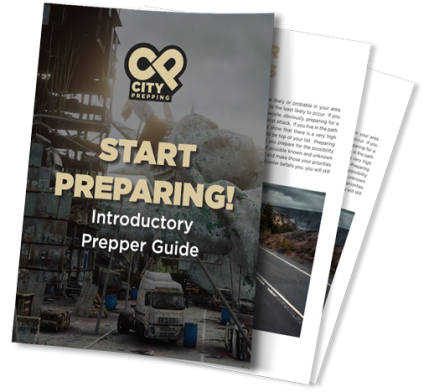


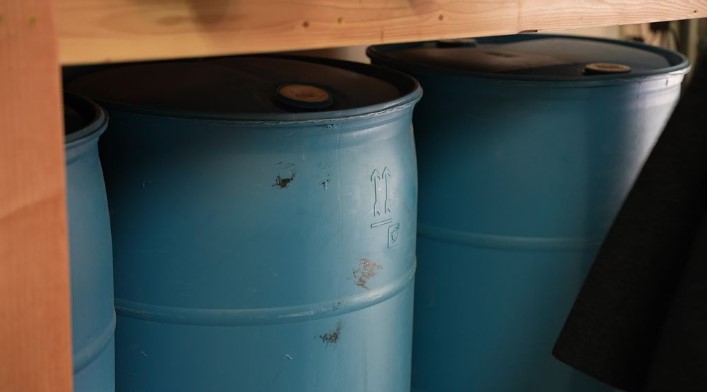
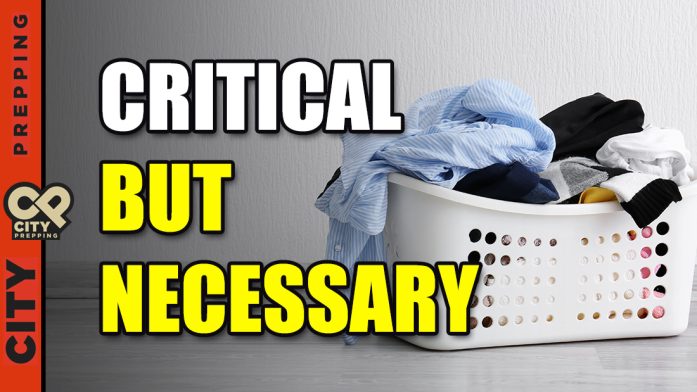
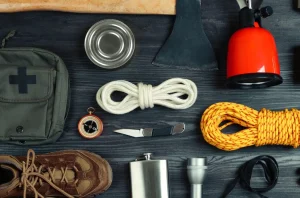
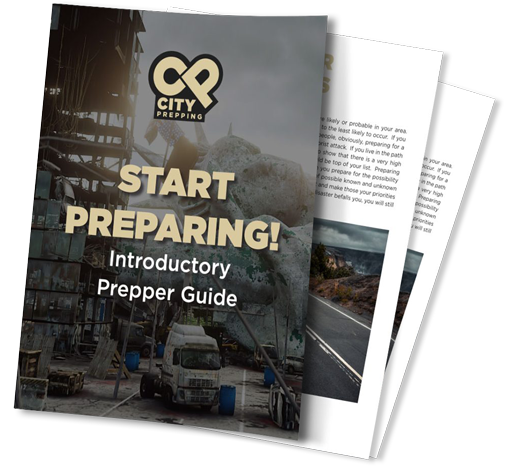
One Response
Great post for all Americans! Thank you!